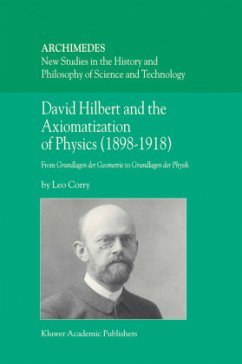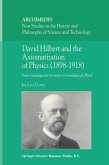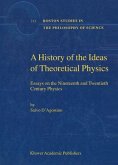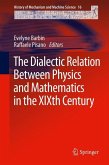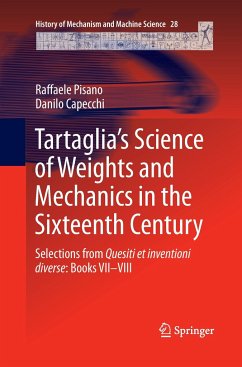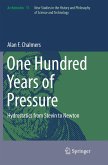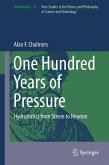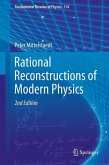David Hilbert (1862-1943) was the most influential mathematician of the early twentieth century and, together with Henri Poincaré, the last mathematical universalist. His main known areas of research and influence were in pure mathematics (algebra, number theory, geometry, integral equations and analysis, logic and foundations), but he was also known to have some interest in physical topics. The latter, however, was traditionally conceived as comprising only sporadic incursions into a scientific domain which was essentially foreign to his mainstream of activity and in which he only made scattered, if important, contributions.
Based on an extensive use of mainly unpublished archival sources, the present book presents a totally fresh and comprehensive picture of Hilbert's intense, original, well-informed, and highly influential involvement with physics, that spanned his entire career and that constituted a truly main focus of interest in his scientific horizon. His program for axiomatizing physical theories provides the connecting link with his research in more purely mathematical fields, especially geometry, and a unifying point of view from which to understand his physical activities in general. In particular, the now famous dialogue and interaction between Hilbert and Einstein, leading to the formulation in 1915 of the generally covariant field-equations of gravitation, is adequately explored here within the natural context of Hilbert's overall scientific world-view.
This book will be of interest to historians of physics and of mathematics, to historically-minded physicists and mathematicians, and to philosophers of science.
Based on an extensive use of mainly unpublished archival sources, the present book presents a totally fresh and comprehensive picture of Hilbert's intense, original, well-informed, and highly influential involvement with physics, that spanned his entire career and that constituted a truly main focus of interest in his scientific horizon. His program for axiomatizing physical theories provides the connecting link with his research in more purely mathematical fields, especially geometry, and a unifying point of view from which to understand his physical activities in general. In particular, the now famous dialogue and interaction between Hilbert and Einstein, leading to the formulation in 1915 of the generally covariant field-equations of gravitation, is adequately explored here within the natural context of Hilbert's overall scientific world-view.
This book will be of interest to historians of physics and of mathematics, to historically-minded physicists and mathematicians, and to philosophers of science.
From the reviews: "This is a massive scholarly book on the work of David Hilbert on physics. In more than 400 pages the author provides us with an in-depth analysis of the fundamental contributions of this mathematician-born scientist to many branches of physics ... . the historical reconstruction, which was the main aim of the author is ... done with extreme competence and care, and it is, I think, of the highest quality." (Daniele Oriti, Mathematical Reviews, Issue 2006 i) "The main message of the book is that physics played in Hilbert's research ... a much larger role than is commonly recognized. ... It is written in a lively but at the same time in a very careful academic style. ... Throughout the book the reader is confronted with many interesting ... facts. ... Leo Corry's book is a significant contribution to Hilbert studies and will be a major reference source ... . I enjoyed reading the book and can recommend it to everyone." (Lev Beklemishev, Studies in History and Philosophy of Modern Physics, Vol. 37, 2006)

